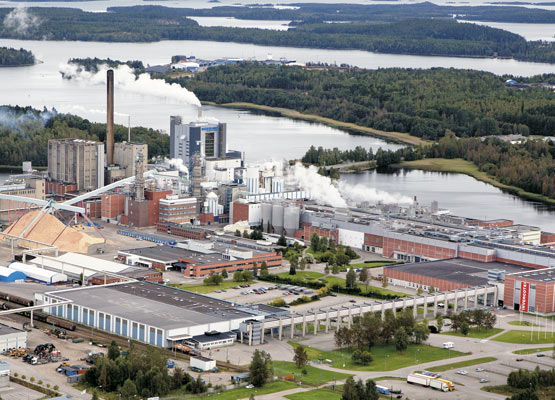Ofgem review risks damaging large energy users
/ins Proposed changes to the UK’s electricity grid charging system are threatening to damage energy intensive businesses and undermine a government-backed drive to increase CHP capacity including biomass.
Ofgem, the electricity regulator, is currently carrying out a Targeted Charging Review (TCR) of the grid. It is concerned that with increasing numbers of both domestic and industrial users at least partly off-grid, there is a looming shortfall in the charging base of the network. The TCR aims to redistribute an increasing cost burden between users and will create winners and losers as a result. One sector which is highly likely to lose is CHP.
Energy intensive users fear that some of Ofgem’s proposals, which are due to go out to consultation by the end of November, are not proportionate and do not take account of the way they interact with the grid.
The estimated increase in cost of the proposed changes could amount to as much as £6.9 million a year from some companies, according to an analysis carried out by the Energy Intensive Users Group.
Increases of this magnitude would mean a huge loss of competitiveness for many energy intensive companies as well calling into question the economic viability of CHP projects including environmentally sustainable biomass. Energy intensive industries, which include the paper sector, are worth £15 billion per year to the UK economy employing 200,000 people directly, while supporting a further 800,000 jobs throughout supply chains.
Andrew Large, Director General of the Confederation of Paper Industries (CPI), said: “The TCR will mean the business case for investing in CHP will be badly hit with mills facing significant additional costs that they can scarce afford.”
CPI member companies, such as Iggesund, are concerned that changes could undermine the significant investment they have made in biomass. Iggesund has invested £110 million in a project to switch the whole of the Workington Mill’s energy supply from fossil-based natural gas to bio fuels.
Ulf Löfgren, Managing Director of Iggesund, said: “Our investment into the UK, on the back of government-led incentives, has allowed us to reduce our environmental footprint and move towards a sustainable future for UK energy. However, the sector is high cost and any major changes could jeopardise our existing work. As they stand, Ofgem’s proposals would, at the very least, force our parent company to reconsider any future investment in the UK.”
Caption: Iggesund Paperboard in Workington invested £108 m in a 150 MW biomass boiler. The targeted Charging Review might increase their annual cost with £ 5000 per employee.
Iggesund
Iggesund Paperboard is part of the Swedish forest industry group Holmen, one of the world’s 100 most sustainable companies listed on the United Nations Global Compact Index. Iggesund’s turnover is just over €500 million and its flagship product Invercote is sold in more than 100 countries. The company has two brand families, Invercote and Incada, both positioned at the high end of their respective segments. Since 2010 Iggesund has invested more than €380 million to increase its energy efficiency and reduce the fossil emissions from its production.
Iggesund and the Holmen Group report all their fossil carbon emissions to the Carbon Disclosure Project. The environmental data form an integral part of an annual report that complies with the Global Reporting Initiative’s highest level of sustainability reporting. Iggesund was founded as an iron mill in 1685, but has been making paperboard for more than 50 years. The two mills, in northern Sweden and northern England employ 1500 people.
Further information:
Staffan Sjöberg
Public Relations Manager
staffan.sjoberg@iggesund.com
Iggesund Paperboard
SE-825 80 Sweden
Tel: +4665028256
Mobile: +46703064800
www.iggesund.com












Let us know if you are going to use this press release. Thank you!